If you want to understand where consumer attention is really going in the AI space, don’t just look at the headlines. Instead, look at Gemini vs ChatGPT vs Grok on Google Trends.
Because this isn’t just a product comparison. It’s a live attention war.
Over the past year, we’ve watched AI go from a buzzword to a business driver and now, the big platforms are battling it out in public search data.
ChatGPT has been leading the charge since late 2022.
Gemini, backed by Google, has made a dramatic late surge in 2025.
And Grok? Despite the Elon Musk buzz, is still struggling to find mainstream traction.
So the real question becomes “who’s winning the AI search battle and what does that tell us about where people’s attention is moving next?“
As marketers, trend-watchers, and brand builders, this is where we get insight that goes way beyond the tech — into timing, positioning, and momentum.
And, just before I continue, I hope you’re prepared for Meta ads automation and the future of SEO.
Okay, let’s continue…
Let’s break down what the data actually shows.
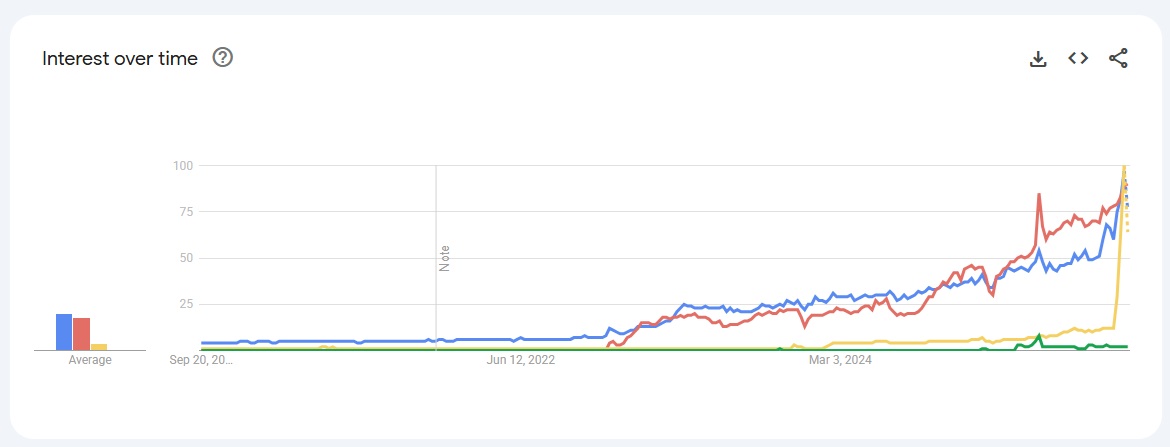
What the 5-Year View Tells Us: ChatGPT Rewrote the Playbook
For most of the last five years, the term “AI” enjoyed quiet, steady growth. It was the kind of keyword that lived in whitepapers, academic research, and B2B slide decks.
Then in late 2022, everything changed.
ChatGPT launched, and the internet’s curiosity turned into full-blown cultural obsession.
Search interest skyrocketed, not gradually, but almost overnight.
This wasn’t just a spike.
It was a tipping point.
AI had a face, a name, and a tool people could use.
From that moment forward, “ChatGPT” started to compete directly with “AI” itself in search volume and in some weeks, even outpaced it.
See the Google Trend data above.
If you’re building brand, content, or product in the AI space, I believe this should be your playbook:
-
Be first.
-
Be usable.
-
Be everywhere.
Because ChatGPT didn’t just build a user base. It shifted the language of the entire category.
Gemini’s Surge: The Challenger Enters the Ring
For most of its early life, Gemini (formerly known as Bard) barely registered on the map.
While ChatGPT was dominating headlines, Gemini sat in the background, quiet, functional, but not yet resonating with users. That changed in August 2025.
In a matter of days, search interest in Gemini skyrocketed, even briefly overtaking ChatGPT in global Google Trends data. It was a jolt. And it wasn’t accidental.
I believe that spike happened because of Google Gemini’s Nano Banana, it’s viral image generating and editing tool.
Google brought its full marketing engine to bear – integrations with Workspace, Android tie-ins, YouTube announcements, and press across every tech outlet.
It worked. But it also revealed something bigger: the public is actively open to new AI tools especially, if they come from trusted ecosystems.
That’s a critical moment for marketers to pay attention to.
Not just because Gemini spiked, but because it tells us that AI loyalty isn’t fixed. Momentum is up for grabs.
Which brings us to a question most brands aren’t asking but absolutely should be…
Do People Expect AI to Be Part of Your Strategy?
We’re not just watching tools compete. We’re watching expectations evolve.
As a marketer or brand builder, you have to step back and ask this question: “Do my customers now expect me to be using AI?”
Here’s the truth: they do.
But it’s not about which tool you use. Your audience likely isn’t checking whether your ops team prefers Gemini or ChatGPT.
What they’re looking for, often subconsciously, is evidence that you’re evolving.
They want faster answers. Sharper insights. Smarter workflows.
They want to feel like your brand is moving with the times.
And whether you say it out loud or not, AI is becoming the silent standard behind that perception.
So no, you don’t need to rebrand yourself as an AI-first business.
But if you’re still working like it’s 2019, it shows. And not in a good way.
The companies integrating AI, visibly or invisibly, are creating a performance gap.
They’re shipping faster, serving better, and sounding more relevant.
That’s the real impact of these trends.
When tools like Gemini and ChatGPT dominate search, they don’t just win attention — they raise the bar for everyone else.
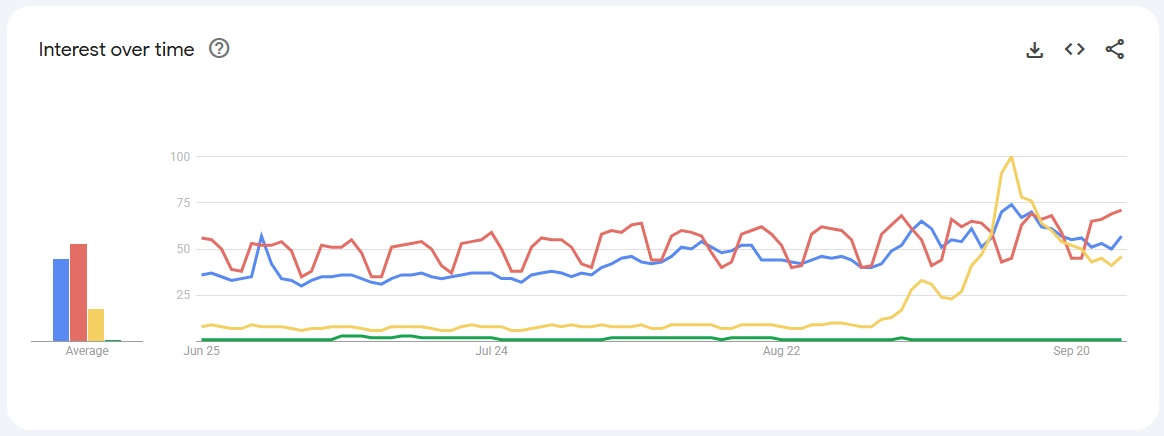
The Last 90 Days: Spikes, Stability, and Signals
Zoom into the past three months, and the story gets sharper.
This is where the real-time search battle between Gemini, ChatGPT, and Grok unfolds, not as a slow-burning trend, but as a sprint for attention.
Here’s what we see in the Google Trends chart:
-
ChatGPT holds the top spot. Not volatile, not flashy — just consistent dominance. It’s the tool people already trust and use regularly.
-
AI (as a broad term) stays strong slightly below ChatGPT, but steady across the board. It still represents general interest, learning, and exploration.
-
Gemini is the wildcard. A sudden, dramatic spike in late August 2025, likely tied to a product announcement or campaign, temporarily lifts it above both ChatGPT and AI. But just as fast, it dips.
-
Grok barely registers. A few small bumps, but no upward trend. Despite its connection to Elon Musk, it hasn’t broken out of niche status.
This short window of search data reveals something crucial for brand positioning:
ChatGPT owns trust.
Gemini is earning curiosity.
Grok is fighting for relevance.
And from a marketing standpoint, all three stages matter.
Trust drives conversions. Curiosity opens doors. Relevance determines if you even get noticed.
So if your brand, service, or content is aligned with AI in any way, this trend line isn’t just a chart. It’s a compass.
What the Gemini vs ChatGPT vs Grok Battle Means for Your Brand
This Google Trends story isn’t just about who’s winning.
It’s about how people decide where to pay attention and what that means for your business.
Let’s break down what’s really going on underneath the surface:
1. ChatGPT isn’t just a tool anymore, it’s a reference point.
When people hear “AI,” many think “ChatGPT.” Was this not your thought as well?
That’s not brand awareness, that’s brand synonymy.
For marketers, this is a reminder that trust and time build dominance.
You can’t fake it. You have to earn it and then keep showing up.
2. Gemini is the proof that fast moves still matter.
Google proved that a strong brand with distribution power can move the market fast.
But attention spikes don’t equal long-term adoption.
The brands that win aren’t just explosive.
They’re consistent.
If you’re launching something new, learn from Gemini’s sprint but aim to match ChatGPT’s stamina.
3. Grok shows that hype alone isn’t enough.
Even with Elon Musk’s name attached, Grok hasn’t captured widespread interest.
Why?
Because users don’t just follow personalities, they follow value.
Your brand’s story can be bold, loud, and exciting but if it’s not useful, the audience scrolls past.
I’m not saying Grok isn’t useful though. I use Grok regularly and I think it has great potential.
And One Final Question: Where Does Your Brand Fit In?
These AI tools aren’t just shaping headlines. They’re reshaping expectations.
When people see how fast ChatGPT answers questions, or how Gemini integrates across Google, it changes what they look for in every brand they interact with.
That’s including yours.
So ask yourself honestly:
-
Does your customer experience feel like it’s powered by 2025 or stuck in 2015?
-
Are you actively evolving your content, service, or workflows with AI or just watching from the sidelines?
-
When a client sees your brand, do they feel like you’re ahead of the curve… or catching up?
Because right now, AI tools are raising the floor.
Not being “AI-powered” isn’t a differentiator. It’s a gap.
Final thought
The battle of Gemini vs ChatGPT vs Grok isn’t just a tech showdown, it’s a temperature check for the whole market.
And whether you’re a solo creator or leading a team, the real question isn’t “Which AI tool is winning?”
The real question is: “Are you building a brand that belongs in the conversation?

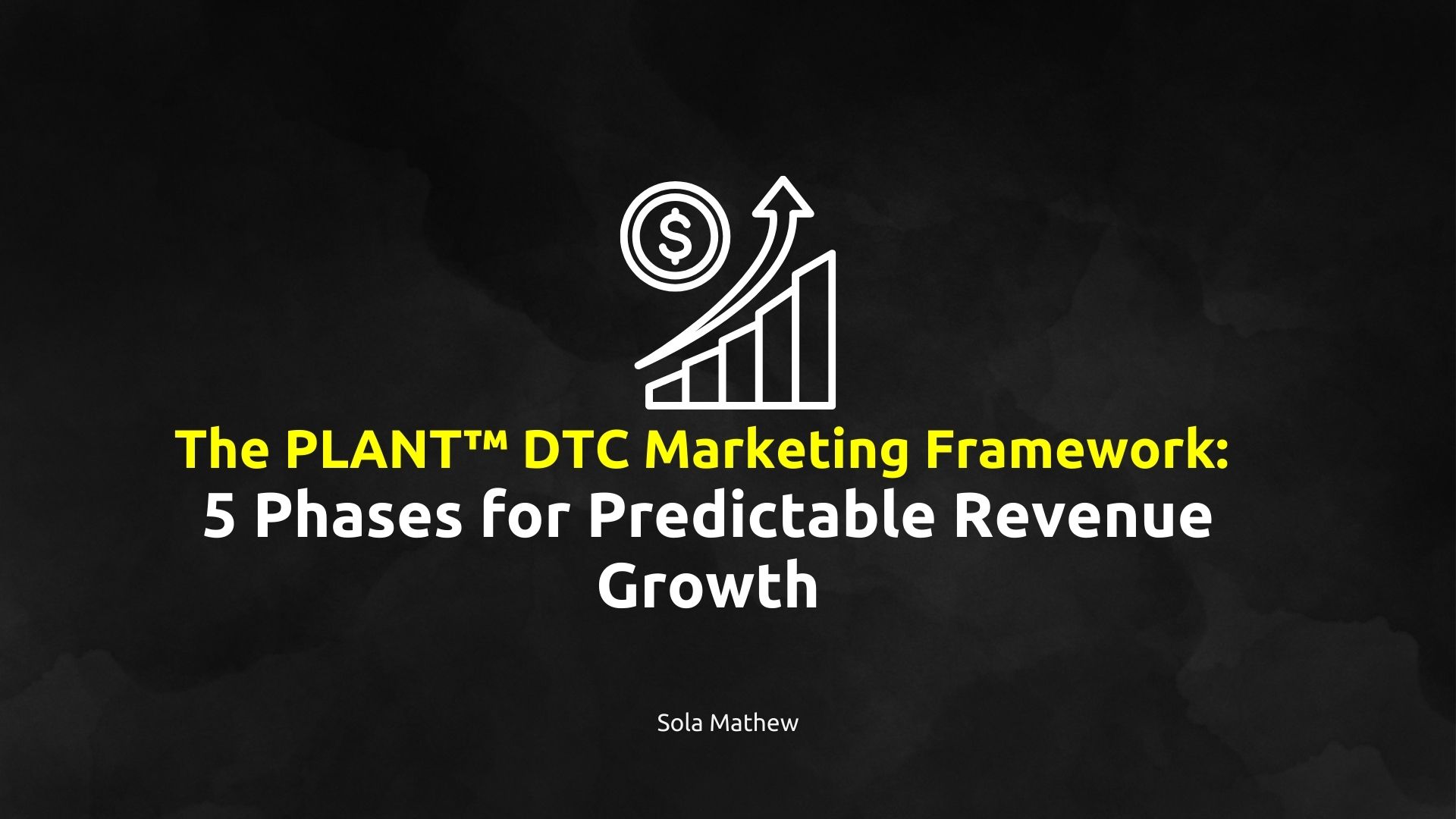
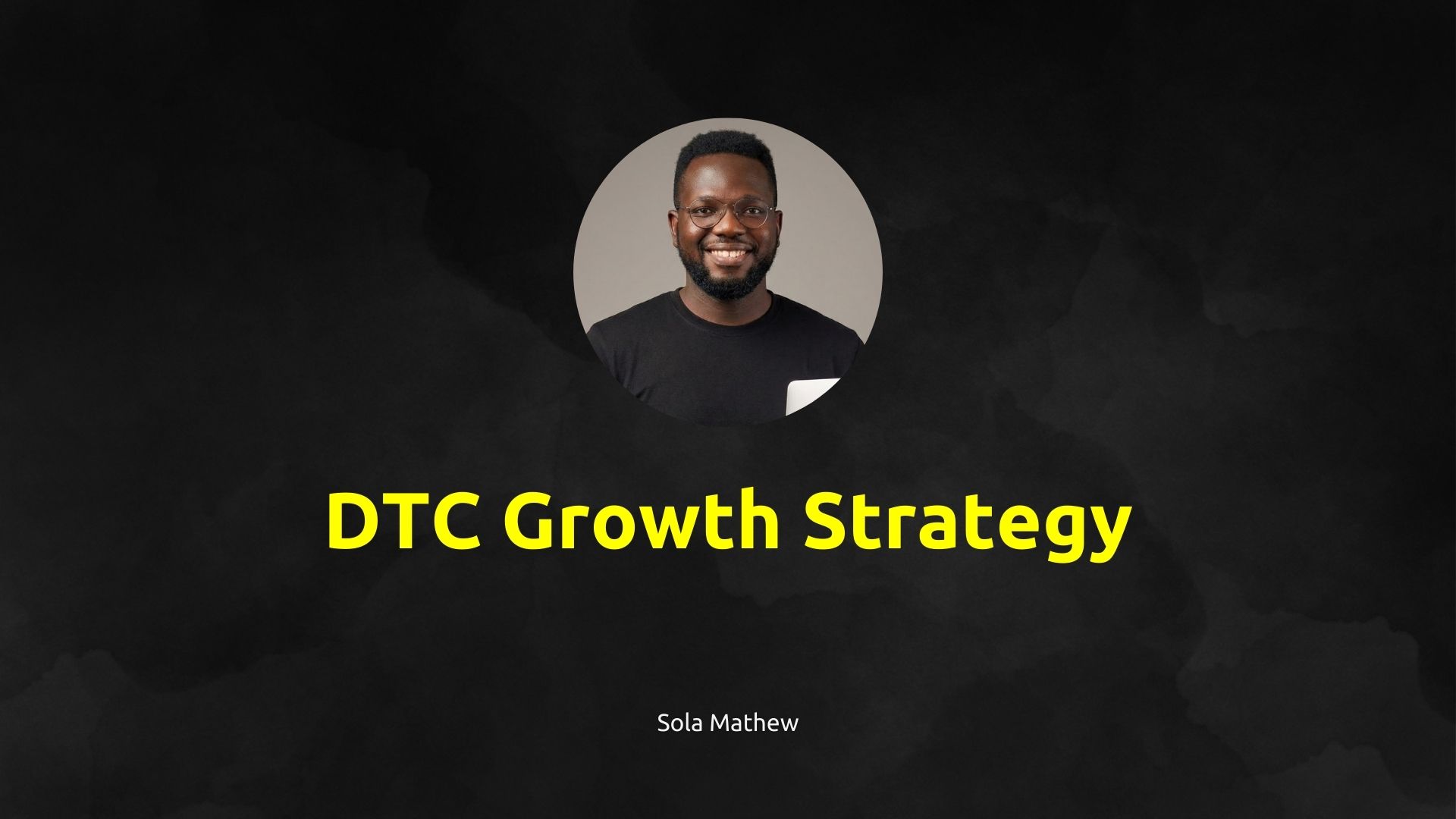
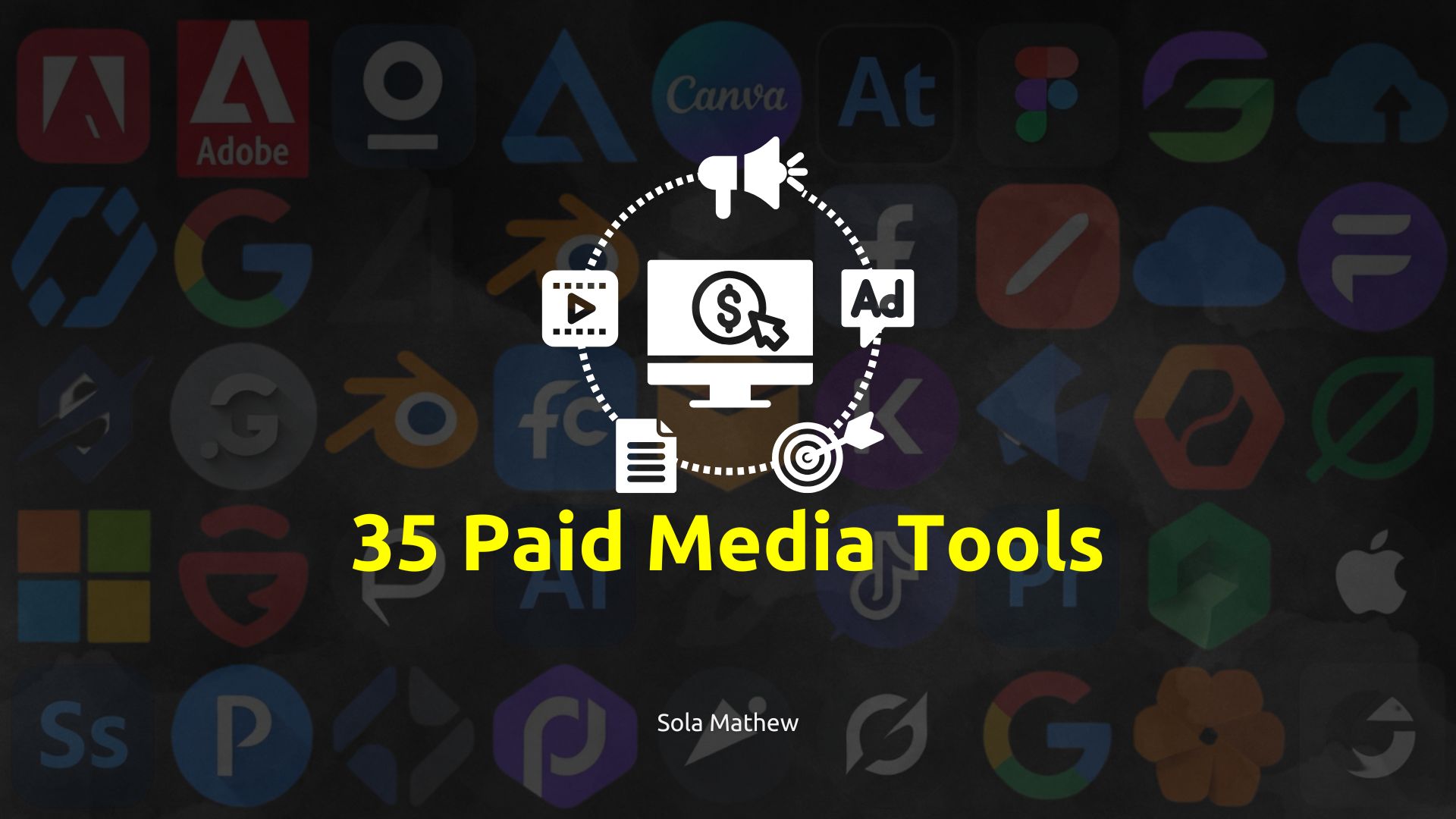
0 Comments